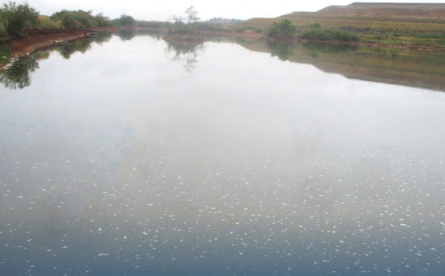Jinchuan Group International Resources Co. Ltd. (JCI), majority owned by Jinchuan Group, is the group's flagship company for the development of international mining and mineral resources operations.
JCI has mining operations in the Chibuluma South Mine (Zambia), Ruashi Mine, Kinsenda Mine, Musonoi Project and Lubembe Project in the Democratic Republic of the Congo.
Pursuing sustainable development, JCI is committed to the effective management of safety, health, environment, and community relations as an integral part of its business. All of its sites and projects adhere to a strict environmental management system that comprehensively protects the environment and the local communities.
Responsible management of water resources is an essential topic for JCI, as mining involves the treatment of large volumes of underground water while concentration and refining require the use of a huge amount of water for refining processes. The company strictly complies with the relevant laws and regulations and considers many key operational aspects in water management, such as water stewardship and water discharge, ensuring that adverse impacts are minimized.
Water stewardship
Clean water plays a vital role in maintaining healthy natural ecosystems. JCI requires each mine to develop separate water management policies and initiatives based on factors such as the climatic and geological conditions of each site and the characteristics of the mining process to ensure that fresh water consumption and unnecessary wastewater discharge are minimized.
Water at Ruashi Mine is recycled from the returned water dams as well as from the storm water dam for use in the plant. The mine site supplies groundwater directly from dewatering boreholes to a local water utility, which then treats the water and distributes it to the local community for daily use.
The main source of water for Kinsenda Mine is underground dewatering. During the reporting period, the mine site has advanced the extension of the underground water supply and carried out the replacement of pipelines from the domestic water source to the water treatment plant. In terms of the drainage system, Kinsenda Mine has further improved the assembly and maintenance capacity of the main pump, and the efficiency of a single pump has increased by about 30% on average, leading to a further reduction in the electricity consumption of the main pumping station.

Returned water dam at Ruashi Mine
Water discharge
Industrial wastewater is mainly generated from the operational process of mining and beneficiation. Pollutants from wastewater are monitored at each of the mine sites. JCI insists that all wastewater and sewage should be recycled to the plant as much as possible after proper treatment and that wastewater should minimally be discharged to the outside.
Ruashi Mine's main source of process water is the open-pit drainage water, which JCI manages in a closed-loop system. The decanted water is collected in two dams called returned water dams and then sent back to the plant. Rainwater and all water collected from the drains is collected in the so-called storm water drains and also sent back to the plant. At the end of the process, the water is neutralized to a pH above 7 and sent to the tailing dams. In addition, sewage and domestic water are treated and re-circulated.
Musonoi Project has pre-surveyed wastewater treatment patterns and locations during the environmental impact assessment and planning stages, and a Water Treatment Options Appraisal has been prepared and approved by the relevant authorities. In the future, the wastewater and the contaminated water generated by the operating workshop and garage will be collected in a closed-loop system. The resulting water will be decanted and recycled to the plant after a quality control treatment.








